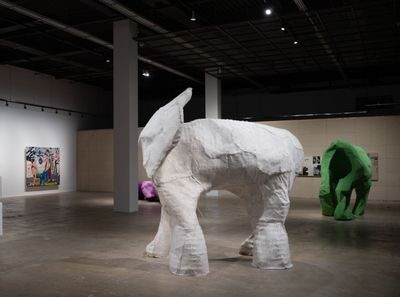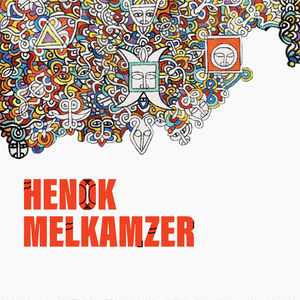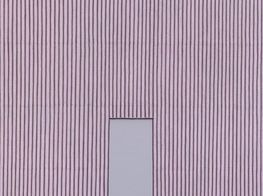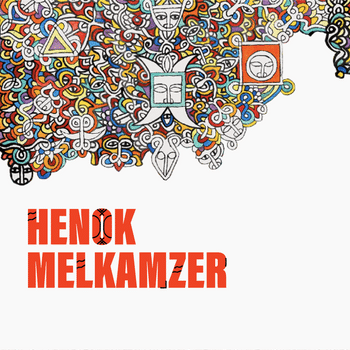Who Is Park Seo-Bo Prize Winner Oum Jeongsoon?
The Korean artist was awarded US $100,000 for her headless elephant sculptures, created in collaboration with the visually impaired, at the Gwangju Biennale.

Oum Jeongsoon, Elephant without trunk (2023). Iron sheet, wool and fabric. 300 × 274 × 307 cm. Courtesy the artist and Gwangju Biennale Foundation.
Gwangju Biennale last week named Korean artist Oum Jeongsoon the winner of the inaugural Gwangju Biennale Park Seo-Bo Art Prize.
Her installation Elephant Without A Trunk (2023) is showing in the Gwangju Biennale Exhibition Hall until the show closes in July.
Outside the Biennale, Oum's exhibition history is relatively sparse, particularly at the institutional level, compared to fellow participants Lee Kun-Yong, Christine Sun Kim, Chila Kumari Singh Burman, and Yuki Kihara.
So who is Oum Jeongsoon?
Oum was born in Chungju in 1961. She studied fine art at Ewha Woman's University in Seoul and Munich's Akademie der Bildenden künste in the 1980s.'The question of "what does it mean to see?" is the background of all my work', Joengsoon told Ocula Magazine.
This quandary led Oum to establish Another Way of Seeing in 1996, an ongoing art project working with the visually impaired.
Oum's Elephant Without A Trunk installation stems in part from another project that began in 2008 in which the artist observed elephants as she retraced the journey of the first elephant to come to Korea, starting in Indonesia and continuing via Japan, 600 years ago.
She sculpted elephants with alternate anatomies based on her visually-impaired collaborators' understanding of the animals from earlier projects, echoing the Buddhist fable of the blind men and the elephant.
Working with the visually impaired and seeing their perspective on the world, Oum explained, 'led me to the perspective of seeing "deficiency" in reverse.'
The inclusion of Oum Jeongsoon's perplexing pachyderm is reflective of the Biennale's push to present new works by lesser-known female artists this year. Jurors were attracted to the universal themes of her work.
The prize's panel of five judges, including Tate Modern director Frances Morris, said, 'this work, a reminder of our reality, holds great significance to all of us transcending nationality, gender, and era. It defines life through strong connections transcending genres, and traditions which have been passed down to this day.'
Park Seo-Bo, acknowledged as the godfather of modern Korean art, expressed his desire to support artists participating in the Gwangju Biennale through his GIZI Foundation.
'I hope that despite the difficulties that lie ahead, they continue, with a sense of duty as an artist, to be a positive influence on society and improve it,' he said.
Park Seo-Bo has committed to awarding the prize each Gwangju Biennale until 2042. —[O]









































































































































































